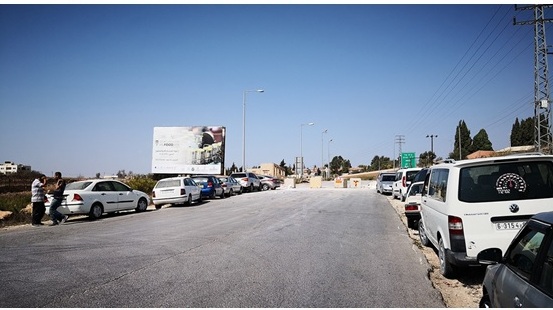During the months of September and October of this year, the Israeli occupation forces blocked the entrances to three Palestinian communities in the occupied West Bank: Kafr a-Dik, west of Salfit (for 11 days); ‘Azzun, east of Qalqiliyah (for 24 days); and al-Jalazun Refugee Camp, north of Ramallah (for 20 days).
According to the Israeli NGO B’Tselem: “Imposing restrictions on the movement of Palestinian West Bank residents is one of the main tools Israel uses in enforcing its regime of occupation and control over the Palestinian population. In addition to the permanent restrictions in place, the military also employs travel restrictions in order to collectively punish villages, and sometimes entire regions, following instances of throwing stones or Molotov cocktails at roads.”

Entrance to the al-Jalazun refugee camp blocked by the Israeli military, October 2018 (Photo: B’Tselem)
Early on in the Second Intifada (which began in September 2000), the Israeli military installed gates and placed concrete blocks at the entrances to most West Bank villages. Now, almost 20 years later, these gates and blocks remain in place and can readily be used by the military to block access to Palestinian communities whenever it is decided to employ collective pressure against local residents. Even when the gates are open, their virtually permanent presence serves as a constant reminder that the freedom of movement of Palestinians is entirely subject to arbitrary Israeli decisions.
“Blocking roads in response to instances of throwing stones or Molotov cocktails is unlawful and constitutes collective punishment of people whose only ‘crime’ is that they happen to live nearby. The roadblocks severely disrupt the residents’ lives, impairing their ability to make a living, get to school, farm their land, receive medical treatment, or simply maintain a reasonable daily routine. The closure of roads as collective punishment deprives thousands of Palestinians of the right to freedom of movement and constitutes arbitrary use and abuse of military force. There is absolutely no moral or legal justification for inflicting this harm,” said B’Tselem.


